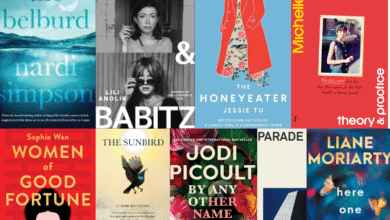The Bookseller – Comment – Up close and personal

The first piece I ever wrote that went viral was about a smear test that I had that went wrong. The second was about a 30-year-old man I had dated when I was 16. At time of publication, I was 25 years old. I had never felt more alive.
You remember what being 25 in 2015 was like; or, if you don’t remember, because you were some other age, you remember being told what it was like. You remember because we were constantly telling you. There were hundreds of us, writing for dozens of websites, all of them offering up to £200 for an 800-word piece on whatever crazy thing had happened to us. Most of us had graduated from some kind of personal blog writing where we were writing dreamy missives about trips to Paris on the Eurostar, and usually for an audience of dozens. Suddenly, we were called up to the big leagues. The Metro wants your piece on bulimia. Buzzfeed has emailed, asking if your tweet about your one-night stand could possibly be a 1,000 word piece on your one-night stand. Vice wants you to review every dick pic you’ve ever received, using a scale of 1-10! It was a personal essay explosion that was commenting on itself even at the time. The personal essays, the personal essays, we complained, why are there so many personal essays? Simultaneously, we were emailing editors: would you care to publish my personal essay?
The well eventually dried up. The websites, mostly, closed down. We (the writers of the personal essays) either moved on or moved up. Some of us became authors. We burrowed underground for years at a time, building our worlds and our arguments, trying to create something larger than what simply “happened” to us. Yet somehow, we find ourselves right back where we started. We are all being asked to write personal essays.
The stakes have been made quite clear: if we would like to write a piece promoting our work, it must be personal. What was once inferred has now become explicit. It doesn’t even seem to really matter whether the theme of the book matches up to the theme of the essay. The act of confession itself, written in a kind of elegiac style that conveys vague hurt and wrongdoing, is enough. Quick, send us pitches: has anyone died? Have you ever had a friend break-up? Did sex with your husband change after marriage? These articles are unpaid, of course. They’re all publicity for your book, the name of which will appear at the end of the article in 8pt italics.
Listen. I’ve published seven books, and I consider myself to be a pretty commercially minded author. I understand that simply telling people the plot of your novel isn’t enough to sell it. You need chewable little snacky-snacks that make readers hungry for the whole meal. You need anecdotes, tips, parables about divine fits of inspiration. You need a funny little story about what your agent said when you told her you were writing about X. Being an author is a creative job but it’s a sales job, too. And as with all sales jobs, you are selling a feeling. The “feeling” of a Jackie Collins novel is exactly what Jackie Collins was selling when you met her: glamour that verges on camp, fiction that verged on gossip, bad taste wrapped around a good heart.
Increasingly, in the world of publishing, it feels like no choice at all. If you don’t write The Essay, you don’t get the coverage. No coverage, no sales. No sales, no further deal.
None of these things are accomplished by personal essays in their current form. A long essay, even if completely unrelated to your book, can still do a great job of selling a voice. But I’ve written these essays. I’ve read these essays, the ones that my friends and peers have been convinced into writing, and most often I squint and wonder where the author I know has vanished to. Spiky, sharp voices suddenly become gauzy and vague. Funny writers turn maudlin. Sunlight darts through the sleeves of a Rixo dress as our heroine daintily confesses her sorrow, photographed somewhere around Hampstead Heath. I wonder if I am a curmudgeon. I wonder if it is just me who feels this way. I text another author, and ask her how she feels about it. Like I’m a child being forced to sing for their grandma, she writes back immediately.
And yes, it’s always women writers. It’s always, always women writers. When I see personal essays written by male authors, the tone, positioning and scope is entirely different. It’s John Banville writing about his first kiss for the Fence magazine. It’s Colm Tóibín on living through the LA wildfires for the London Review of Books. If you’ve never read these essays, look them up. They are fabulous. They are not so much personal essays as literary non-fiction. There are no pullquotes in the headline reading “I COULDN’T BELIEVE IT – I WAS IN THE LA WILDFIRES”. There is no Tóibín in Rixo.
Maybe I’m being unkind. Maybe my peers really were dying to write something about the worst moment of their lives for a Sunday supplement. But in my experience as a writer – a job I’ve had longer than any other – most writers don’t really want to write about their lives. They want to write about their ideas. Or rather, they want to communicate their outlook, and sometimes that contains their personal lives and sometimes it doesn’t. That’s their choice. Increasingly, in the world of publishing, it feels like no choice at all. If you don’t write The Essay, you don’t get the coverage. No coverage, no sales. No sales, no further deal.
Continues…
Source link


